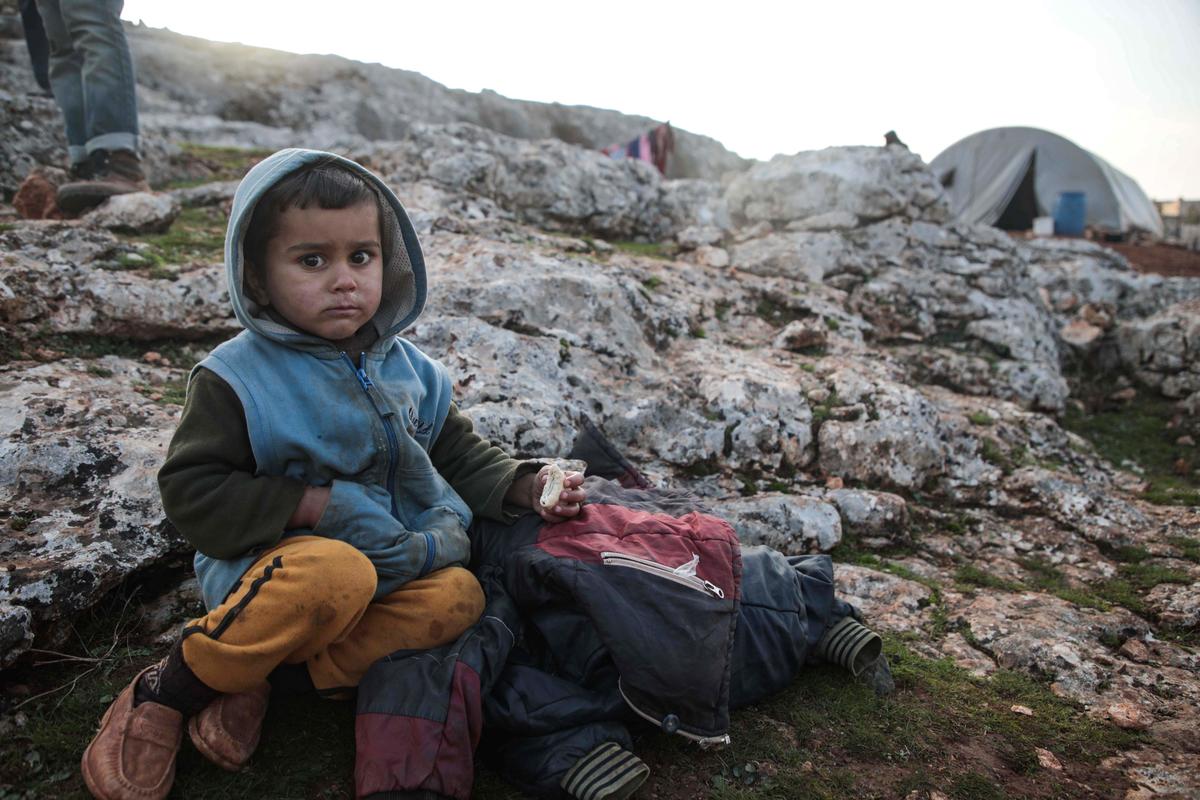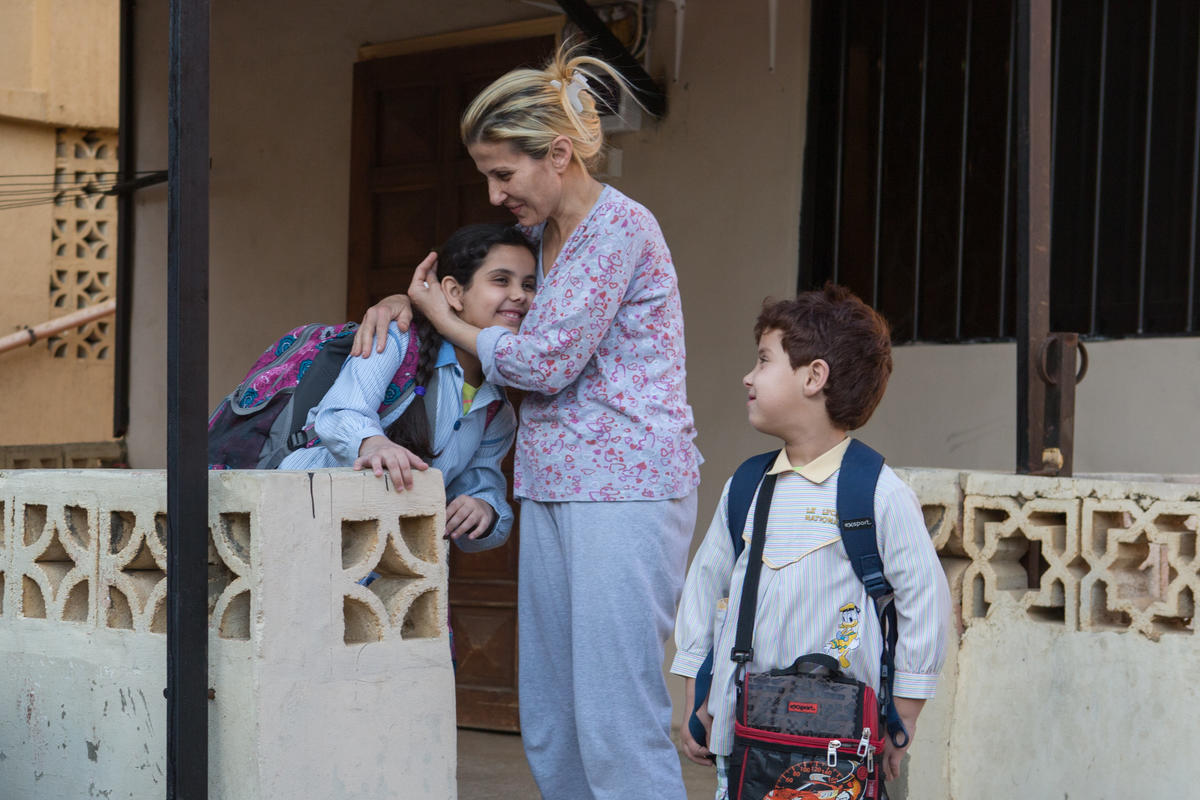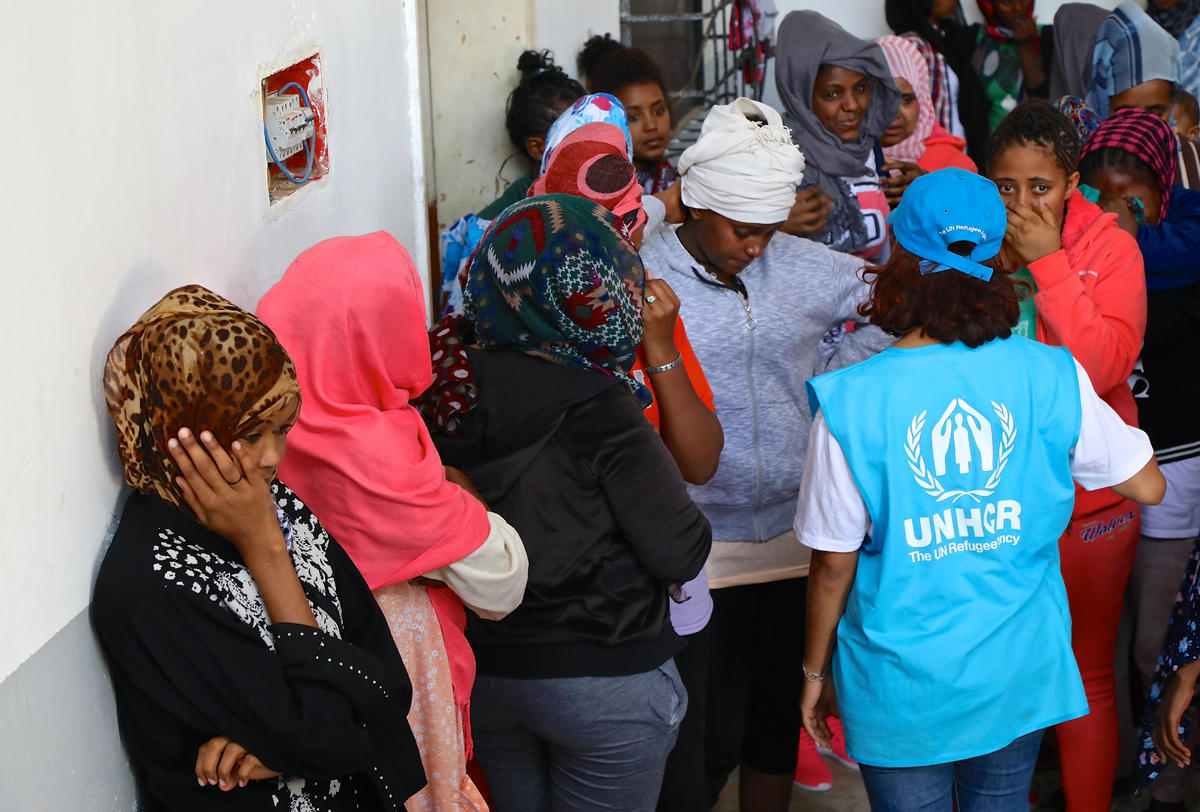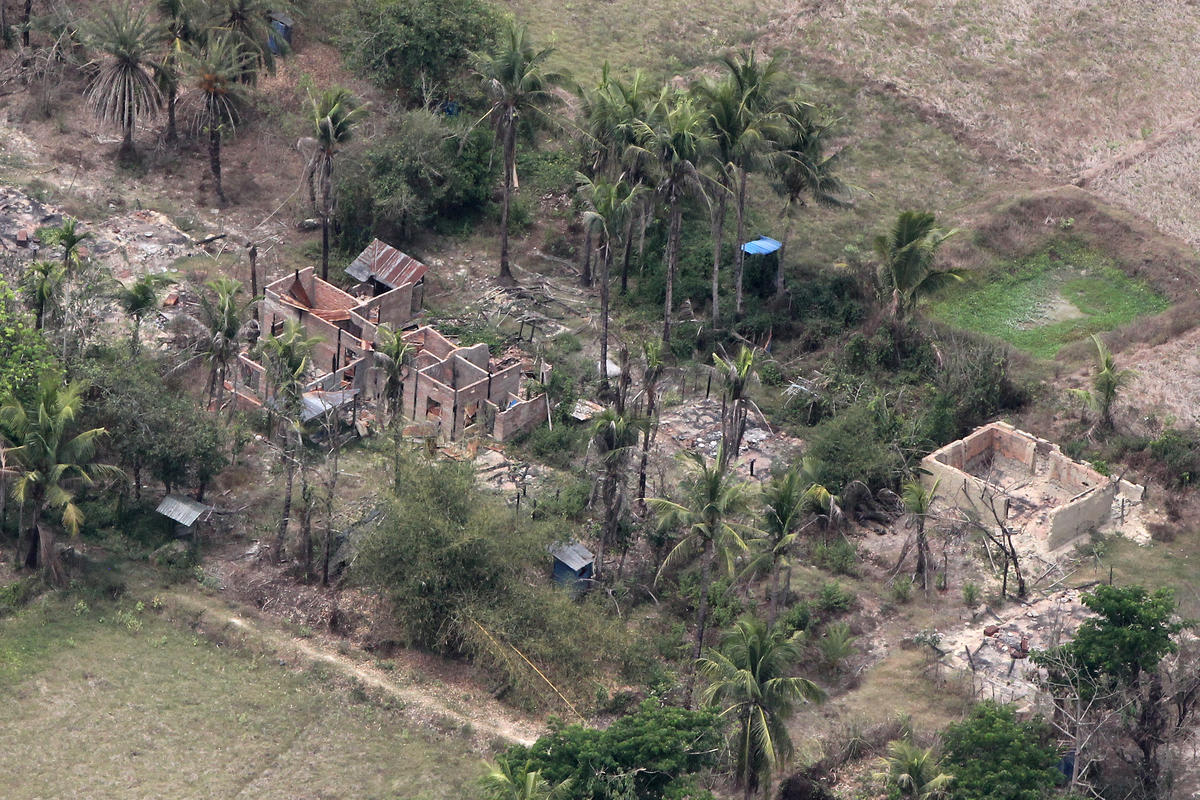UNHCR gets eastern Chad's chiefs and officials talking
UNHCR gets eastern Chad's chiefs and officials talking

ABECHE, Chad, October 30 (UNHCR) - Talk your way out of tensions, that's the message the UN refugee agency conveyed in a recent workshop for community leaders and local authorities in strife-torn eastern Chad.
Conflict resolution and peaceful co-existence were the key words in a three-day workshop supported by UNHCR, its partner Eirine and the Association Chefs traditionnels du Tchad (ACTT) and held in Abéché University earlier this month.
Seventy people, including traditional and religious leaders as well as administrative officials, gathered to discuss the root causes of conflict and come up with feasible solutions.
Clashes in eastern Chad's Assounga and Dar Sila provinces in the last two years have affected the whole region and displaced 180,000 Chadians. "If we had had such conferences before, maybe our problems would not have become so bad," said Mahamat Saleh Bele Badé, chief of the nomadic Miserie Noir tribe.
While the co-existence between local farmers and nomads moving with their livestock in eastern Chad functioned well for centuries, it has been disrupted by political developments in Chad and the neighbouring Darfur region of western Sudan as well as by increased competition for natural resources.
"Usually if anyone in our tribe upsets someone during our annual trek north or south, I would contact the district chief and it would be amicably sorted out," explained Badé. "Now the local authorities intervene and a minor quarrel can get out of hand."
During the workshop, the participants were quick to identify some of the major causes of conflict in their districts: the lack of fairness in sharing limited natural resources like water and firewood, the absence of justice and the culture of impunity, the weakness of some local authorities, and the diminishing influence of and respect for traditional chiefs and conflict resolution. As a result, there is a rising tendency by armed elements to rely on weapons instead of dialogue.
"Inter-community dialogue is essential in this region," said Catherine Huck, UNHCR's Deputy Representative in Abéché. "However, we need not only words but also action to follow."
Mahamat Ibrahim Bakit, the chief of the south-eastern district of Bahr Azoum, noted, "Sometimes the nomadic cattle herders allow their animals to roam through our people's fields, and sometimes our people allow their crop growing to encroach into the traditional migration corridors." He stressed the need to respect this delicate natural balance.
To avert another outbreak of violence this year, the chiefs decided to either postpone cattle migration after the harvest in December or to identify new migration corridors away from the fields. While both solutions would mean more hardship for the herders and their animals, they were willing to consider it in the interest of peace.
During the workshop in Abéché, the participants showed a practical approach to finding solutions at the local level. They were outspoken about the situation in Chad and the responsibility of the government. At the same time, they made demands to the humanitarian community, including the need to drill more water wells in eastern Chad.
"We need more fairness in the distribution and management of our natural resources," said Ali Mahamat Mahamoudi, secretary general of ACTT. "Disarmament needs to go on, impunity must be stopped and - most of all - the space to intervene must be given back to us, the traditional leaders."
Abdelkarim Mahamat Issaka, representing the chiefdom of Oueld Djam district, added, "This is the second time we've met. The last time we just talked, but this time we think we will see some positive results, because UNHCR is supporting us."
To continue the dialogue, the leaders decided to create a commission composed of the main traditional leaders and local authorities. As a next step, they will sensitize their communities back home to the means of peaceful co-existence.
UNHCR takes care of 240,000 Sudanese refugees in 12 refugee camps in eastern Chad. Under the UN cluster approach, it is also the lead agency for protection, emergency shelter, site coordination and management, and telecommunications for 180,000 internally displaced persons in the region.
By Annette Rehrl and Suzanne Murray-Jones in Abéché, Chad









